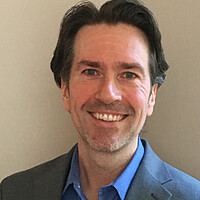First day of summer 2013: What is a solstice anyway?
For those living in the Northern Hemisphere – about 90 percent of humanity – today marks the first day of summer.
But what does that mean, exactly? You hauled the air conditioners up from the basement weeks ago, the flip-flop tan lines on your feet are coming in nicely, and you've already been woken up more times than you can count by your neighbors' lawnmowers. What makes today the first day of summer?
The solstice. Friday – at 5:04 am, Greenwich time, to be exact – marks the point at which the sun appears in the sky at the farthest point north from the equator. The Northern Hemisphere gets sunlight for a fraction of a second longer than it did on Thursday. From here on out, the days will get progressively shorter for those north of the equator, and progressively longer for those south of it. This will continue until December 21 at 5:11 pm Greenwich time, when the sun appears in the sky at its southernmost point, and the whole process reverses.
The word "solstice" is derived from the Latin words "sol," for sun, and "sistere," meaning "to stand." That's because, on the solstice, the sun appears to come to a stop in the sky before reversing direction.
You can thank the Earth's axial tilt for this phenomenon. Our planet tilts at an angle of about 23.4 degrees relative to its plane of orbit around the sun. If it didn't tilt at all, there would be no seasons, and the Earth would have fixed bands of climate that would get colder as you moved away from the equator. Twice a year, around March 20 and September 22, we get a taste of what this world would be like, when the center of the sun appears directly over the equator. Astronomers call these days equinoxes.
So if today is the day that the Northern Hemisphere gets the most sunlight, then why does it tend to be hotter in July and August? This is due to thermal inertia. Just like the proverbial watched pot, the oceans take a long time to heat up. As they do so, they absorb much of the heat that would otherwise be warming the air.
Two weeks from now we'll see another orbital milestone. On July 5, at 4:45 Greenwich time, the Earth will be at its aphelion, or farthest point from the sun. Our planet's orbit is nearly circular, though – its distance from the sun varies by only about 3 percent over the course of a year – so it won't affect temperatures that much.
But many apparently smart people sure think it does. A well-known video produced in 1987 shows university graduates, faculty, and alumni on commencement day attempting to explain why we have seasons. Of the 23 randomly selected people, 21 couldn't explain why it's warmer in the summer than in the winter. In what the antipodean tenth of humanity could have taken only as a snub, most of those who got it wrong said that summers were warmer because the Earth was closer to the sun.
The school, by the way, was Harvard University.





